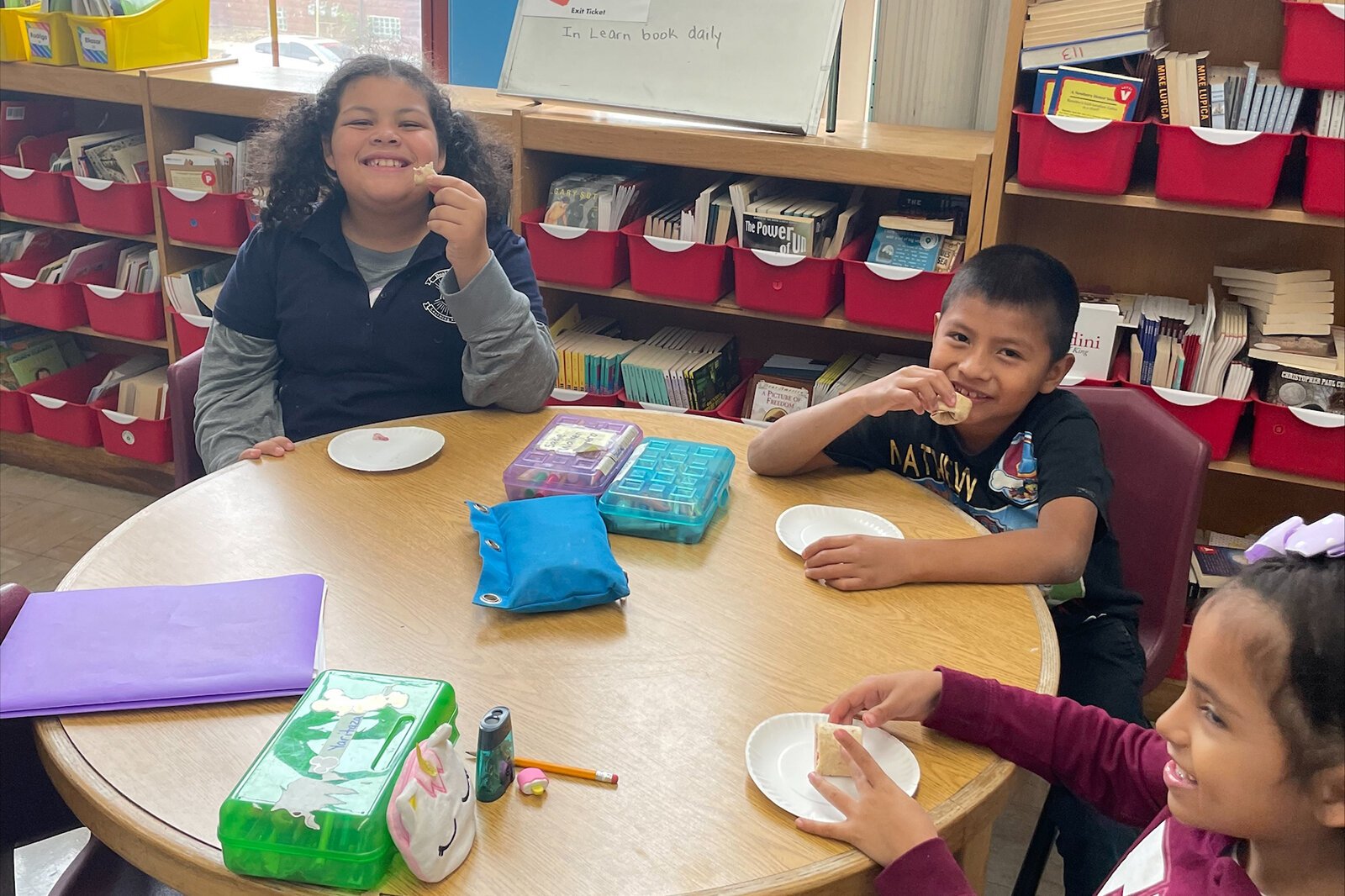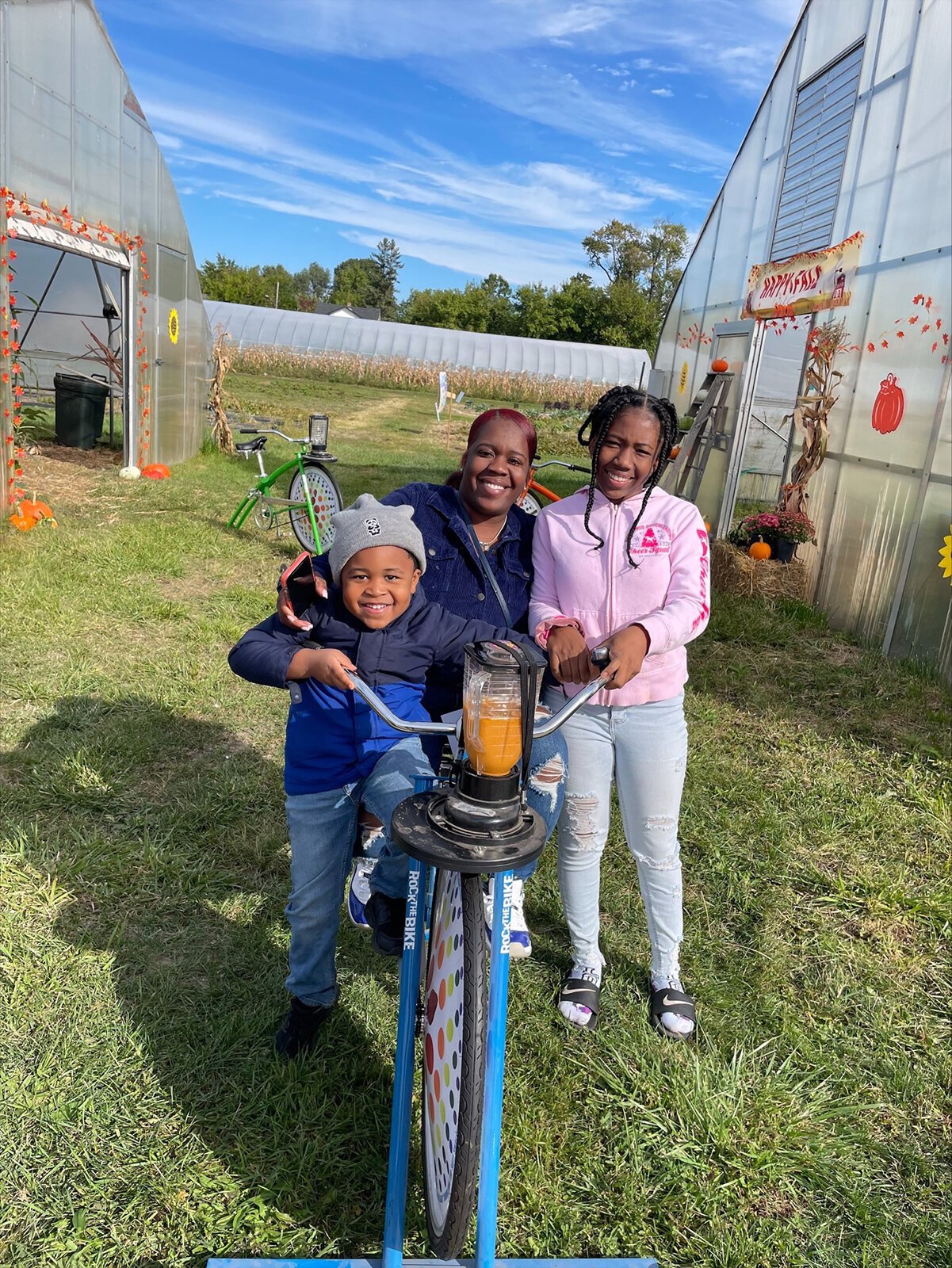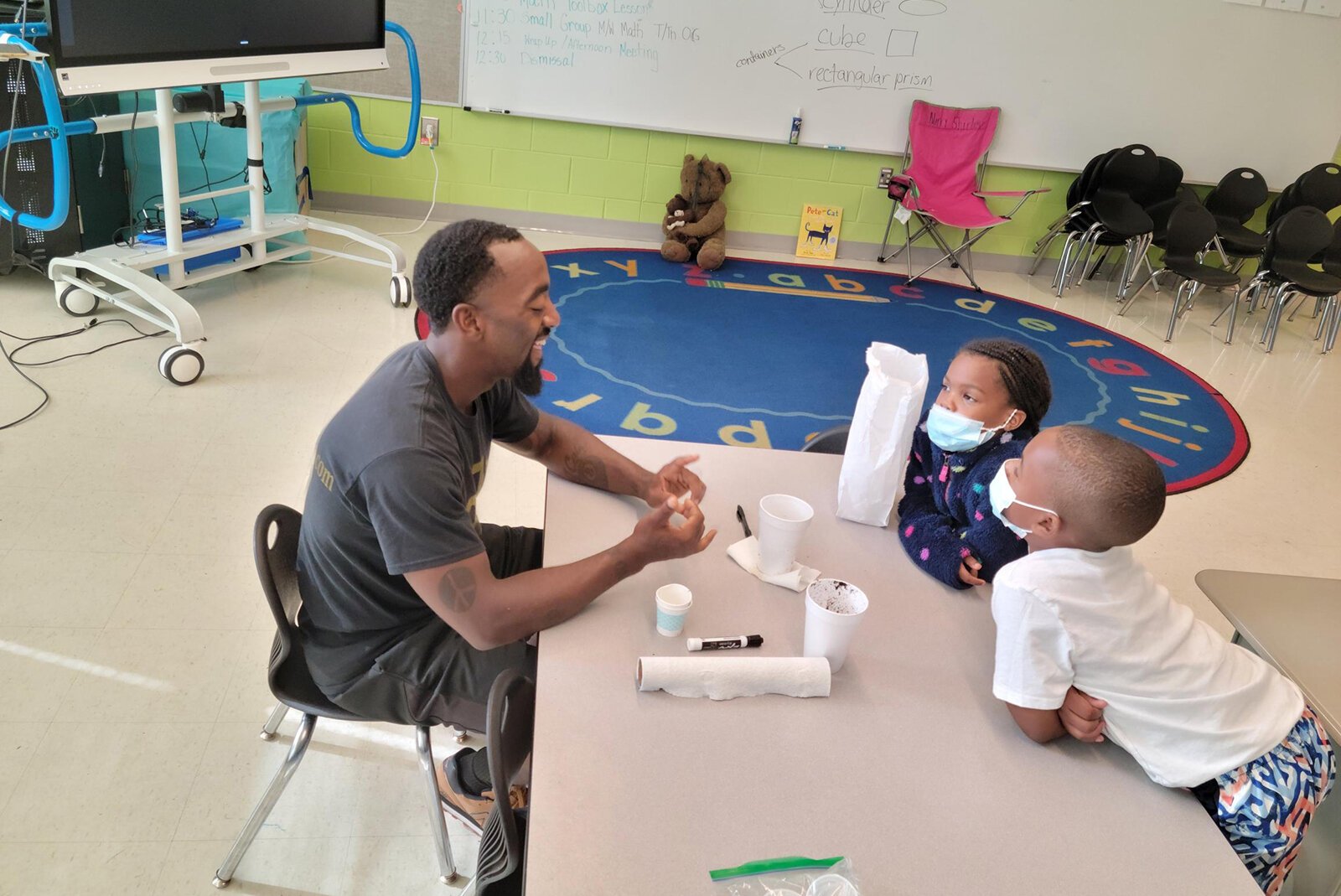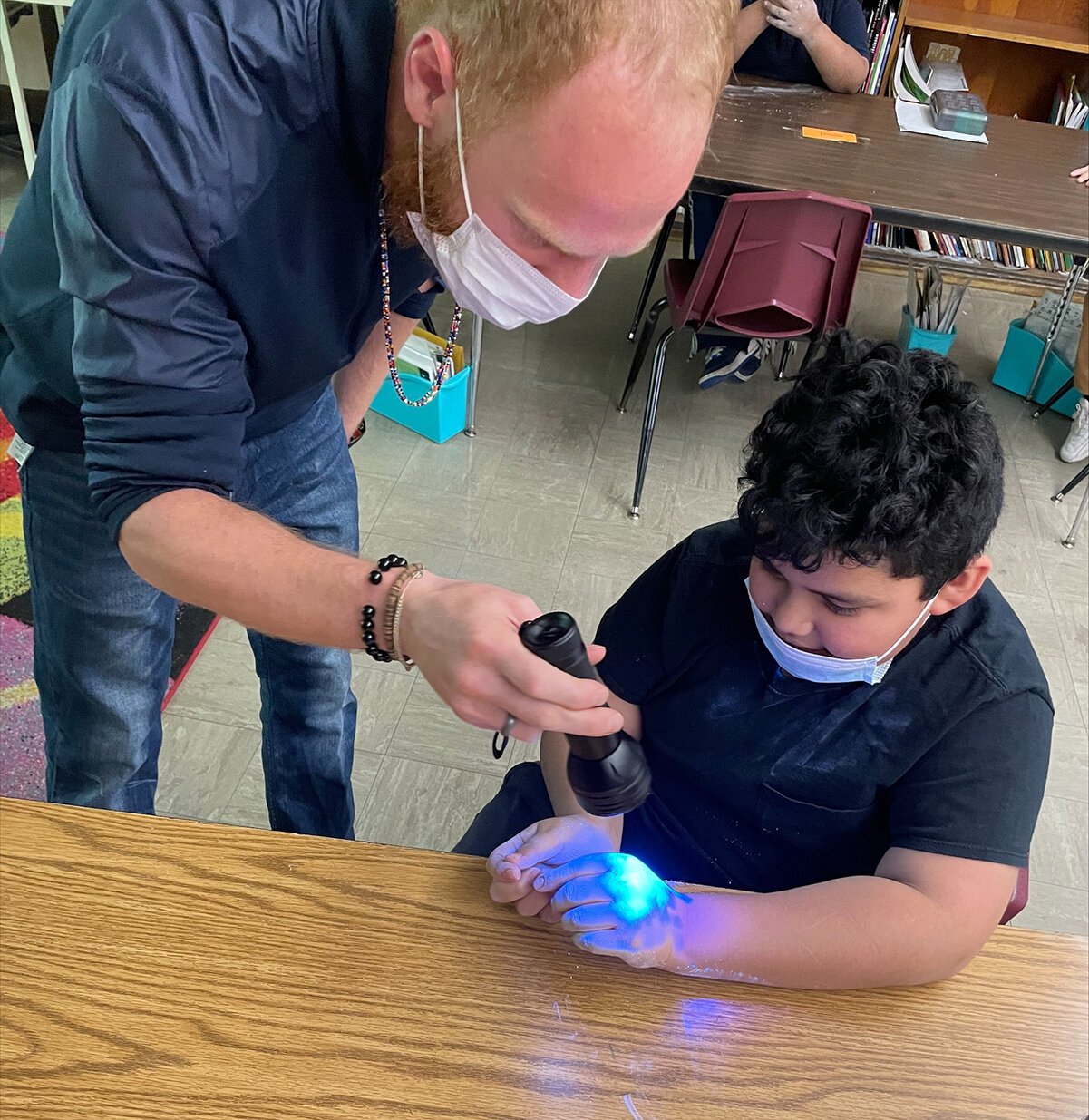Partner Partner Content Detroit Public Schools Community District Farm-to-School initiatives grow through SNAP-Ed
The DPSCD Farm-to-School initiative increases the amounts of locally grown fruits, vegetables, and legumes used in school breakfasts and lunches.

This article is part of Stories of Change, a series of inspirational articles of the people who deliver evidence-based programs and strategies that empower communities to eat healthy and move more. It is made possible with funding from Michigan Fitness Foundation.
Detroit Public Schools Community District (DPSCD or District) emphasizes a holistic approach to education and their Farm-to-School initiative is one of the ways the District helps ensure its students are not just academically successful, but also physically healthy. The initiative, operated by the DPSCD Office of School Nutrition, increases the amounts of locally grown fruits, vegetables, and legumes used in school breakfasts and lunches.

DPSCD Farm-to-School strategies are made possible in part by Michigan Fitness Foundation (MFF) Supplemental Nutrition Assistance Program Education (SNAP-Ed) funding. MFF is a State Implementing Agency of the Michigan Department of Health and Human Services for the education component of the Supplemental Nutrition Assistance Program. SNAP-Ed is an education program of the U.S. Department of Agriculture that teaches people eligible for SNAP how to live healthier lives. MFF offers grants to conduct SNAP-Ed programming throughout the state of Michigan.
The DPSCD Farm-to-School initiative carries out the District’s mission to provide high-quality food, nutrition, and wellness education while eliminating barriers to healthy food.
“The District has been a leader in farm-to-school for decades, though the work is never done,” says Matthew Hargis, DPSCD Farm-to-School supervisor. “There’s always more we can do to increase our impact to strengthen our community. As SNAP-ED continues to evolve in the District, it has become clear that SNAP-ED can take farm-to-school programming to a new level and through the collaborative effort of our SNAP-ED partners, we are working toward that goal of pushing the work to new heights.”
One way SNAP-Ed contributes to the District’s Farm-to-School work is by supporting staff time to help facilitate the Detroit School Garden Collaborative, which connects students, teachers, and community members to local agriculture while engaging them in growing their own fruits, vegetables, and edible flowers. This work is a natural extension of efforts to develop gardens at school sites. Eighty-two DPSCD schools already have a school garden consisting of six raised beds built by carpentry students at Drew Transition Center. And there are plans to install gardens at all DPSCD schools.
DPSCD has also been intentional about taking the time to look at their Farm-to-School efforts as a whole. In this way, they can assess the strength of their strategies and see where they have opportunities for growth. They also use the MFF MyGarden™ curriculum to combine academic learning, nutrition education, and gardening through hands-on, interactive activities for students.

“This past summer, we delivered programming using MyGarden™ to students at 16 schools,” Hargis says. “The emphasis on healthy meals and nutrition education in MyGarden™ also connects students with healthy food choices by teaching students to eat seasonally using locally grown food.”
The Farm-to-School team at DPSCD is part of a Farm-to-School Collaborative with Project Healthy Community and the Wayne State University Detroit Healthy Youth Initiative, who also offer SNAP-Ed in the area.
“SNAP-Ed helps us to identify the processes and barriers to implementation of programming, and our SNAP-Ed partners are very good at offering resources to address potential barriers,” says Hargis.
Because they are all involved in SNAP-Ed work of their own, they can brainstorm ways to strengthen what already exists in their programming and how they can use their collaboration to support the work that each is already doing.
“We’re all working together to further Farm-to-School,” Hargis says. “The pandemic really illustrated the need for proactive health approaches, especially related to nutrition and physical activity. Our SNAP-Ed programs get children on the right foot so that they will have better health outcomes over the course of their lives.”
The DPSCD SNAP-Ed team is also spending time in District 6, one of Detroit’s most culturally diverse areas, which encompasses the Southwest, Corktown, and Midtown neighborhoods. After making connections with existing organizations serving the neighborhoods, they were able to gather community feedback during summer events held at four schools within District 6 to learn about the issues surrounding access to healthy foods and their ability to be active.
“We were able to engage families during the events and talk about what is important to them in terms of healthy eating and what our SNAP-Ed programming is providing in District 6,” says Brittany Mitchell-Kelley, DPSCD Farm-to-School and SNAP-Ed PE-Nut™ coordinator. “We also asked questions about their access to physical activity. Where do they like to spend time outside of the house to be physically active?”

These efforts did not go unnoticed. The DPSCD Wellness Committee invited members of the Farm-to-School Collaboration to engage school staff in assessing how well schools were following DPSCD Wellness Policy recommendations when promoting physical activity and nutrition.
“Working in collaboration with the DPSCD administration was the breakthrough we were waiting for,” Mitchell-Kelley says. “We laid the groundwork with the schools to do a needs assessment to better understand where each school was at regarding nutrition and physical activity so that we could help come up with a plan to move forward.”
Hargis notes that during the DPSCD Wellness Policy Assessment, the Farm-to-School Collaborative went above and beyond by doing comprehensive surveys at over 20 schools, greatly exceeding expectations and requirements.
“This effort was only made possible by our SNAP-Ed work and through collaboration with our other SNAP-Ed partners,” he says. “Support from MFF helped us explore opportunities and identify activities that align with our SNAP-Ed goals, which really helps us make sure to stay on track and ensure we’re executing a shared and appropriate vision across the District.”




